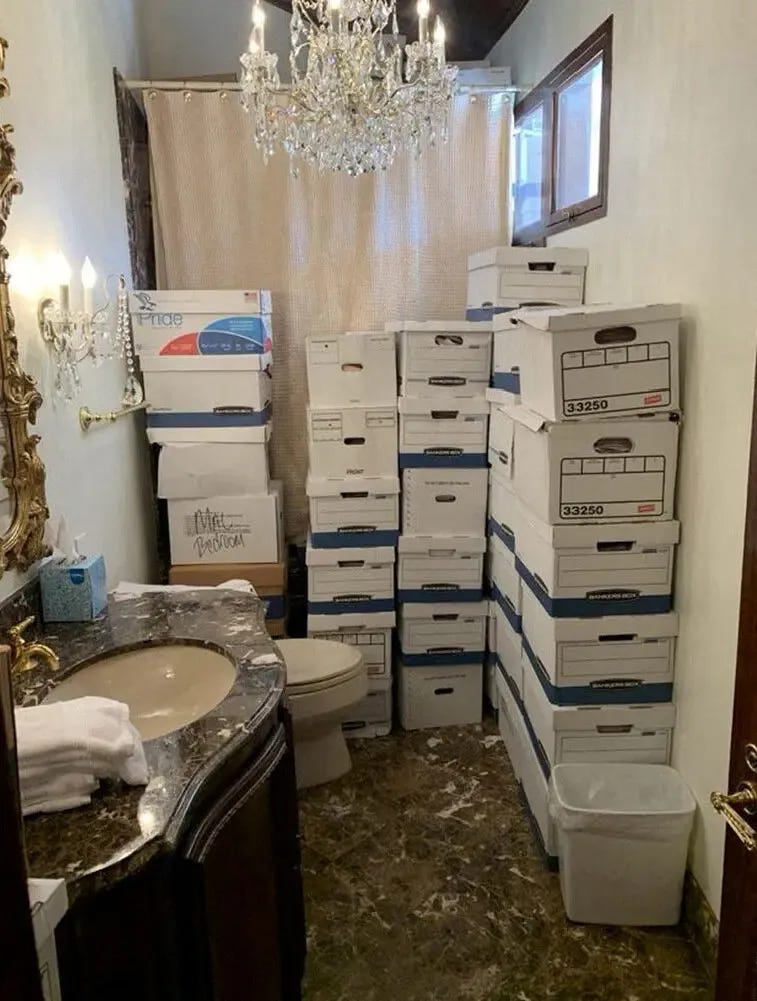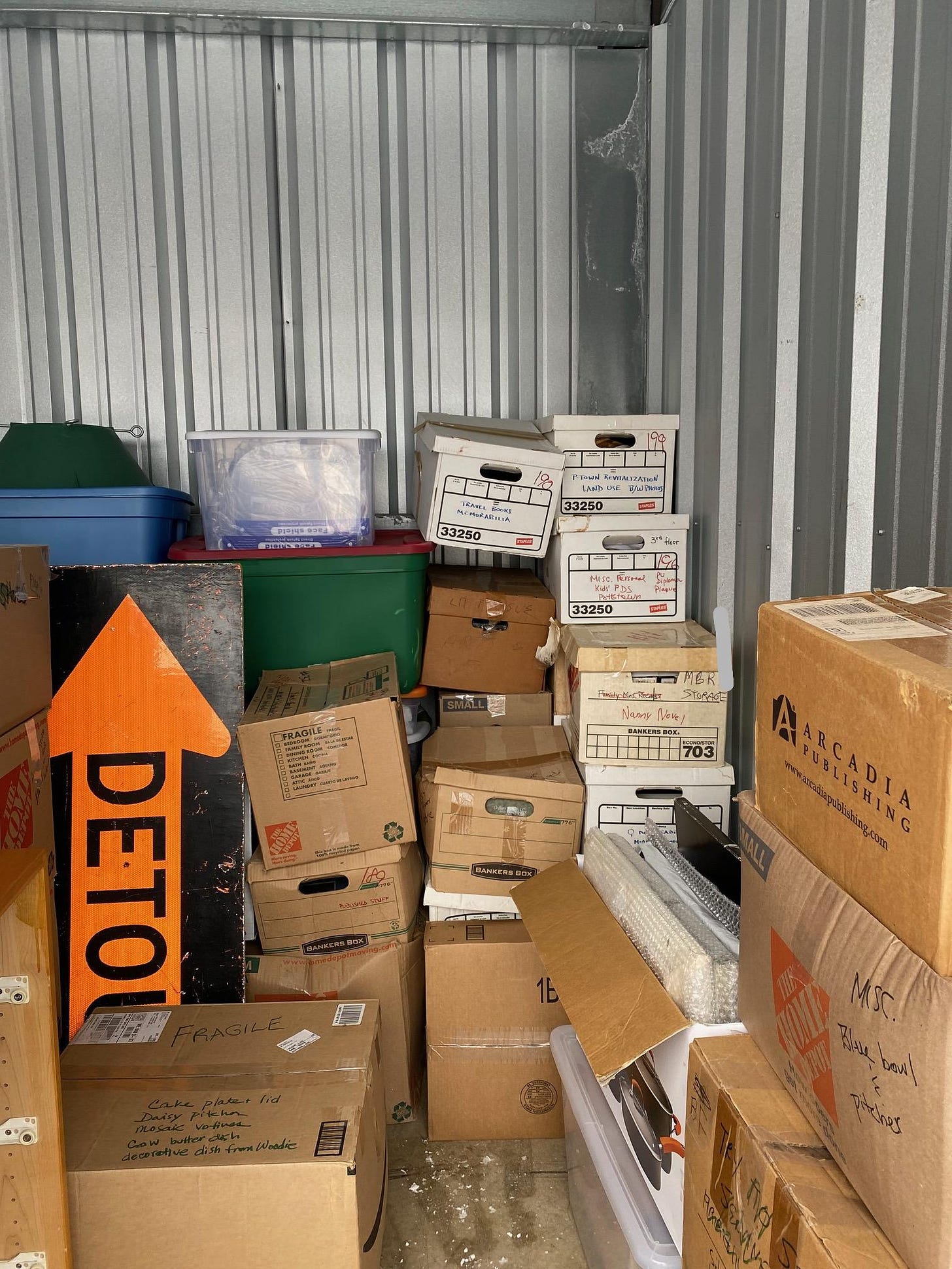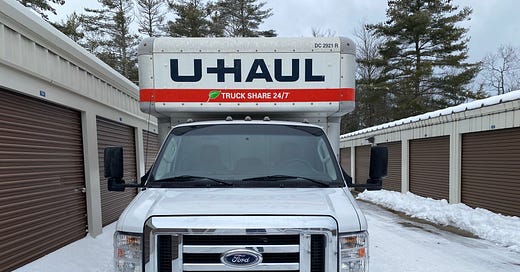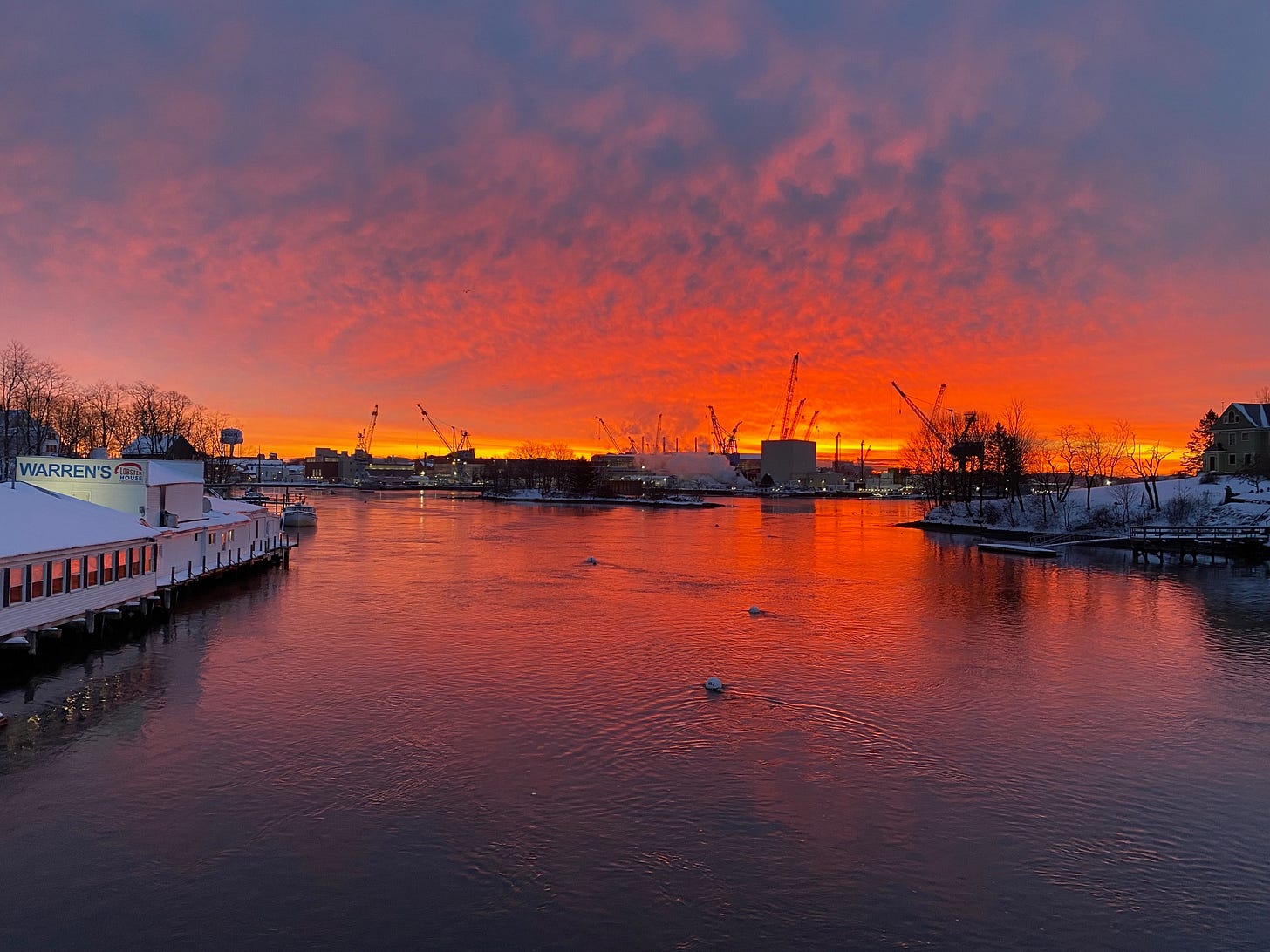I have launched! Welcome to Letting Go/Holding On, where I’ll be exploring what it is exactly that I want to release or keep during this era of my life. It feels necessary, on so many levels, to lighten my footprint on the earth, to shed certain ways of thinking/being, and to name and nurture what’s healthy for me and my communities, all of it subject to ongoing revision. Maybe I will come up with some hard-and-fast rules to live by, like “Don’t go to any more yard sales!” Or “If you buy a book, you must give away a book.” More likely, though, I will gravitate toward general principles and do my best. As I get this exploration firmly underway, I can’t wait to invite you to join in the conversation with your own stories and experiences of letting go/holding on.
Now, please allow me to briefly pivot with a political reference point. I promise this absolutely has to do with the extraordinary challenge, for me, of letting go!
It’s been more than a year since so many of us saw the June 2023 Justice Department photo of bankers boxes stored in a former president's opulent bathroom. It hit me kind of hard, and I’ve been thinking about it off and on all this time. Sure, it was deeply troubling on a national security level that he took classified documents on his way out the door and then stored them haphazrdly in semi-public places. But what caused my heart to skip a beat was this New York Times headline: “At the Heart of the Documents Case: Trump’s Attachment to His Boxes.”

I, too, have an attachment to boxes. They, too, mostly contain paper. Documents, if you will. Of course, none are of national interest…yet. Because you never know if the beginning of a best seller is in there. Or if some tchotchke will remind me of a story I need to tell, which might become an award-winning essay.
In that summer of 2023, a long-term relationship came to an end, a house was sold, and I drove away from a bunch of stuff that I left in a 10’ x 10’ storage unit in southern Maine because I could not deal with it. By “deal with it” I mean “process the things not only as inanimate objects, but also as hopes, ideas, memories, mortality, abandoned projects—the stuff of the soul.” The various endings shut up in that space had taken everything out of me, including my voice. I had struggled over the past couple years to write anything truly new, anything other than the countless revisions of a memoir my agent was unable to sell, another ending to reckon with.

In the months after leaving Maine, I figured I would deal with the contents of the storage unit in the fall, surely before winter set in. But then I found myself falling in love with a small Victorian in a charming small town in New Jersey, the first home I would own by myself. And she needed some attention—painting, chimney repair, a new water heater. Summer turned to fall and fall to winter as I opened my heart enough for this new relationship to take hold.
But the storage unit intruded every time the monthly fee appeared on my credit card statement, along with fond recollections of my beloved gardening tools, framed photos, the books I used to read to my long-grown up children, and the bankers boxes filled with drafts of other unpublished work, their electronic files mostly lost to discarded hard drives. What would become of these physical things that conjure up the people, places, and memories that provide a road map of the life I’ve led?
Maybe the hardest part of being a memoirist is what to put in and what to leave out. I want to put in all of it! Or nearly so. In my mind I see the connections, the interrelatedness of so many seemingly—at first—disparate strands of my life. Alas, no manuscript can hold every last anecdote. And I cannot keep every last box. Well, I could, but when I pass from this earth, I would then be leaving the unwelcome task of sorting and disposing–or just wholesale disposing–to my loved ones. If anything has become clear to me over the past five years (pandemic, catastrophic effects of climate change, aging), it is that there is no point to keeping every last box. That only a fraction of the possible stories I want to tell are going to make their way into the world. That my time on this planet—the time left for the planet itself, as we know it—is finite.
I made a U-Haul reservation from inside a cocoon of blankets on my couch in New Jersey on New Year’s Eve 2023. I had not been to a party, had not been drinking, and did not typically make resolutions. But the winding down of the holiday season allowed that storage unit to reassert itself in my psyche. I had last seen its contents in July, before pulling down the door with a clang, snapping a lock into place, and driving away from that chapter of my life.
Now 2024 was staring me square in the eye, arms folded, not budging. The middle of the winter was not a time to be driving a U-Haul through New England by myself, but it felt urgent. It was time to return to southern Maine ever so briefly, to stare down those losses, to feel them anew. To take my chances with the weather for the sake of my mental health and another step toward closure. My administrative brain took over: rent a car, drive north, spend the night, drop off the car, pick up the U-haul, meet the movers at the storage unit early in the morning, and drive back to New Jersey that day. Total time: 36 hours. Eight days later, I executed the plan between two storms—snow up north and torrential rain down south—arriving home just before the wind kicked up.
It’s October now, and some of the evidence of a life lived still waits for me in a couple of basements. They are dry (mostly) and well-lit, as good a spot as any to do some reckoning. Enter this Substack, Letting Go/Holding On. To hold myself accountable. To connect with others who may be taking stock of their own lives and things. To resurrect a voice. To keep telling stories, always.





